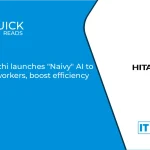Oracle Japan announced that Nagano Prefecture Shinkin Bank has adopted Oracle Cloud Infrastructure (OCI) to fully open and cloudify its next-generation accounting system. Nagano Prefecture Shinkin Bank will also use Oracle Base Database Service to ensure the reliability and responsiveness of its data management system. The project is being carried out with the support of Accenture, which is familiar with digital reform in the financial industry and has a track record of system renewal, and is scheduled to go live in 2027.
Nagano Shinkin Bank is modernizing its accounting system, which has been running on a mainframe, to a new system based on open technology. As part of the system modernization, they will use Accenture’s rewriting tool MAJALIS to convert the application language from COBOL to Java, and will also migrate the OS and middleware to open technology. This will address the “2025 Cliff,” a major issue facing companies – the decline in flexibility and maintainability due to aging and complex legacy systems.
For the cloud infrastructure, OCI, which has a strong track record in mission-critical workloads, was adopted, and was also highly evaluated for its non-functional requirements such as high performance and availability, as exemplified by ” Oracle Real Application Clusters ,” as well as its cost aspects. This project utilizes ” OCI Compute ” and “Oracle Base Database Service,” and is designed to improve performance, improve business efficiency, and address related regulatory requirements.
Also Read: Raccoon Financial and MIRAIS Group Sign Customer Deal
As mainframe modernization becomes a priority for Japanese financial institutions, OCI will help them migrate their mainframe applications and databases to the cloud. OCI is the ideal platform for migration from mainframes to the cloud, with its high flexibility and automation capabilities. In addition to the cloud benefits of simplified infrastructure management, scaling, and automatic security patching, OCI provides the tools and resources necessary to rebuild and refactor mainframe applications, helping them rapidly deploy and continuously evolve according to their business needs.
SOURCE: PRTimes







